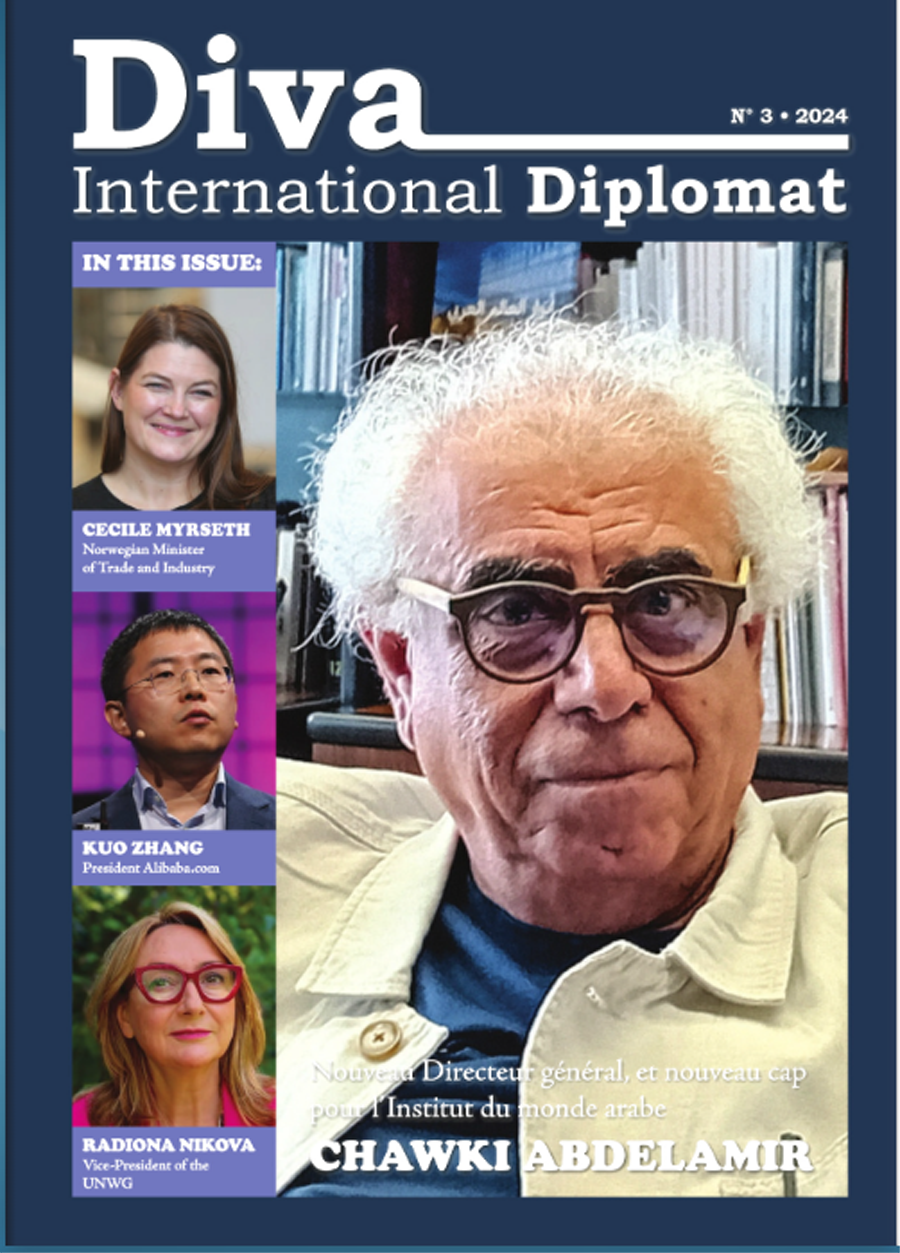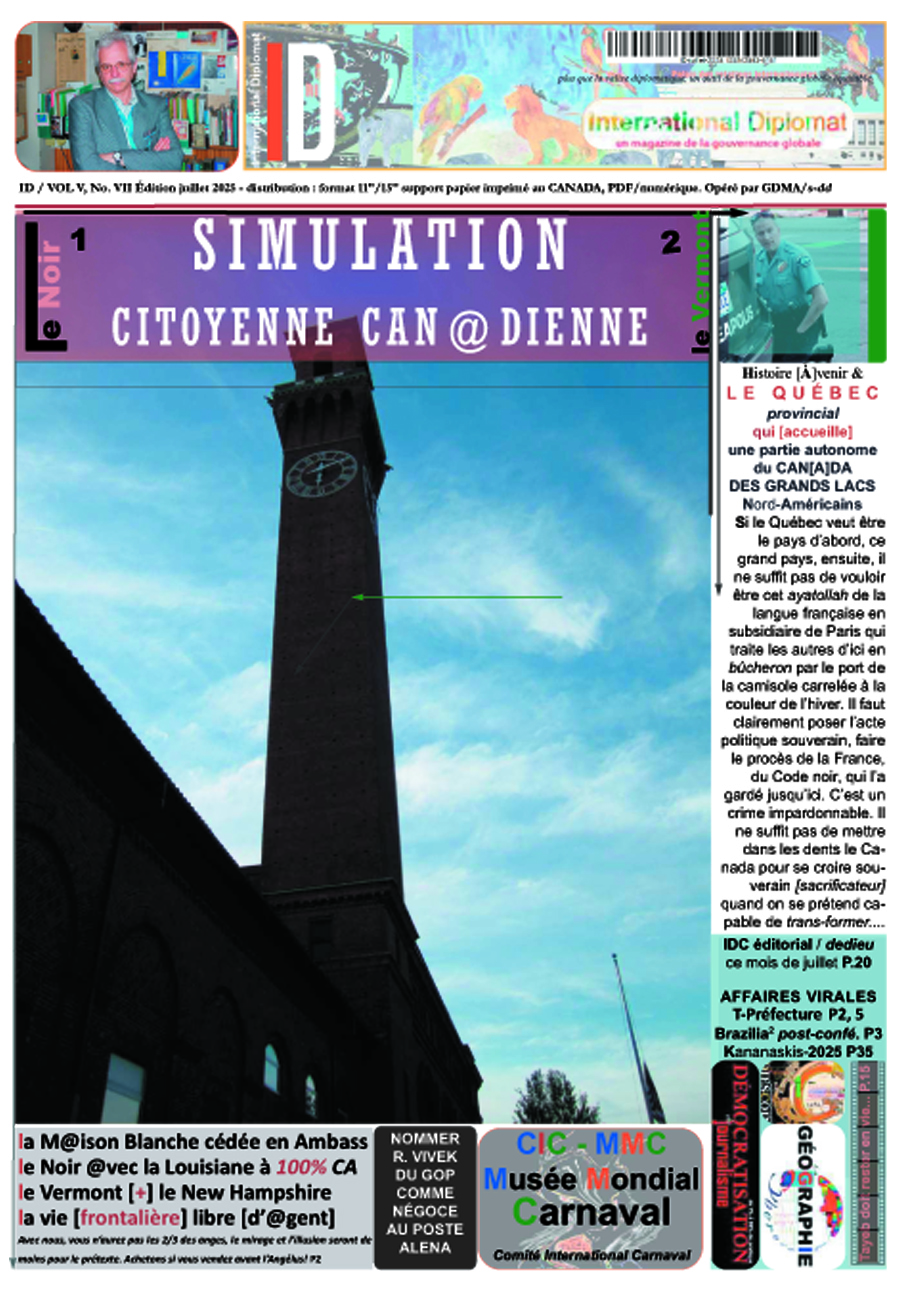When you meet a British « Sir », you expect an elderly, grey-haired, avuncular gentleman and not a nice, young, friendly person like Sir John. His colleagues in the Office for the Co-ordination of Humanitarian Affairs (OCHA) have, by the way, put the « Sir » aside, so Sir John is now just John…
Before taking up his new position at the United Nations, Sir John was a career British diplomat who had had postings in Russia, the UN Mission in New York and India to his credit. As if this were not enough, Sir John has also served as Assistant Private Secretary to the Foreign Secretary; head of the European Union Department in the Foreign and Common-wealth Office, then as Private Secretary and subsequently as Principal Private Secretary to Prime Minister John Major, and finally as UK Ambassador to Portugal and France.
He was awarded the CMG* in 1997 in the Resignation Honours List of former Prime Minister John Major for his services as Principal Private Secretary. In 1998 he was appointed CVO* and in 1999 awarded the KBE* on the recommendation of Tony Blair on leaving the senior job at No. 10 Downing Street, a higher honour than normally bestowed because of his work on the Northern Ireland Peace Talks. In 2005 Queen Elizabeth II promoted him to be a GCVO* at the conclusion of her State visit to France to celebrate the 100th anniversary of the Entente Cordiale. Despite his imminent departure for Geneva, Sir John took the time to answer all our questions when we met him in his New York office …
Q: You were appointed to your current position six months ago.
To be precise, four and a half months ago, and during that time I have spent almost half of my time travelling between Geneva and New York and also visiting the field.
Q: In your previous job, you were a diplomat and now you are responsible for humanitarian affairs. Is it a big difference to be inside the UN?
It’s true that when you are a diplomat you defend the interests of one’s country, whereas now I defend a global cause. I have far more freedom now than I had in my previous position. However, being a diplomat you change jobs and locations often, so although this job is a new one, as a diplomat you are used to changing topics like this. The general public is placing higher and higher expectations when it comes to humanitarian work, and we have to live up to that. On one hand, you have the current emergencies that have to be dealt with; then you have the forgotten crises. On the other hand, you must also look to the future as we are certain that more and more natural disasters will take place — due to the climatic changes. These also have to be prepared for.
Q: Geneva is the humanitarian capital of the world, while you are based here in New York. Do you find it difficult to be so far away?
That’s one of the reasons why I’m travelling so much between the two. The headquarters of OCHA is here in New York, and it’s true that the main humanitarian agencies are in Geneva. However, when you are involved in humanitarian work, it’s also closely linked to the political work that is taking place here in New York. So it’s very important to be here too.
Q: Do you find it difficult taking over after Jan Egland, who was quite an outspoken man?
Not really. Jan Egeland was perhaps from a different background than I, but we are defending the same causes. We have different styles, which is quite normal as we are different persons.
Q: We haven’t seen you so much in the press though?
Well, I might not have the same media coverage, but nevertheless I have spoken quite a lot to the press lately about different subjects.
Q: Do you find it difficult to find funding for humanitarian crises?
It is true that with the humanitarian appeals, there is a difference between what we usually request and the amount that we actually receive. The need is always so much higher. To help bridge the gap, we use the funds from the Central Emergency Response Fund (CERF).
As for OCHA itself, OCHA is funded by voluntary contributions, and so far we cannot say that there is any problem. The CERF has far more donors than the traditional donor nations — to date we have seventy donors —who sometimes have given small amounts but nevertheless it’s an important step. By 2008 we should reach US$450 million; today we have about US$346 million in pledges.
Q: Is there an agency that is going to be dedicated to internally displaced persons?
So far there have been no plans for setting up an agency specifically for IDPs.
Q: When you travel and see all this human misery, how do you feel?
You have to react in a very professional way, and turn this frustration and anger into constructive action. It’s not easy, but that to my mind is the only way to do it.
For instance, when I visit a camp of internally displaced persons, what I see is perhaps the better part of it. I do not see the destruction and the killings. I bear in mind that these people have gone through far more miseries than the awful things I see.
One should also think about the humanitarian workers who go out there to help — not because of the money, not because of the prestige, but simply because they want to help.
Q: On the subject of humanitarian workers, are you planning to do anything additional for their security?
Last week I had the chance to speak in the Security Council about the security of the humanitarian workers, and it’s important to draw Member States’ attention to this subject.
Q: But not everyone attends the SC meetings.
Of course, but it’s important to draw the attention of everybody to this subject — to start with, the Member States, then the local government, rebels, etc. Humanitarian workers are there to help, with no political agenda. They should not only get access to the catastrophes, but be protected and respected as well.
Q: Do you have a particular message to the international community in Geneva?
In Geneva we have a well-functioning partnership with all the UN agencies, NGOs, etc., and it’s important that we maintain this partnership — that we all work closely to improve the humanitarian work. Some of the NGOs are bigger in size than some of the UN agencies and it’s important that we all work together.
Q: You have quite a lot of work and much travelling. Do you ever get time off?
Well, in this job with all this pressures and the travelling everybody needs time off, including me. So I try to get a break from time to time. So far I have been doing a lot of travelling, almost half of my time in office, which I think is about the same as my predecessors.
However, I must admit that I have been quite lucky — there has not so far been any huge humanitarian crisis, but one day or another it will come …
NOTES CMG: Companion of the Order of St Michael and St George. An honour usually awarded to ambassadors. CVO: Commander of the Royal Victorian Order conferred on those who have performed personal services for the Queen. KBE: Knight Commander of the Order of the British Empire, admission to knighthood giving the title of « Sir ».GCVO: Knight Grand Cross of the Royal Victorian Order.





